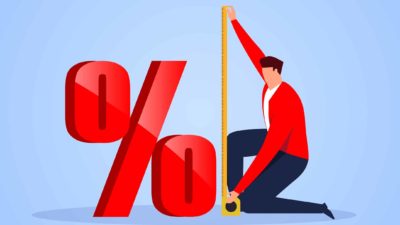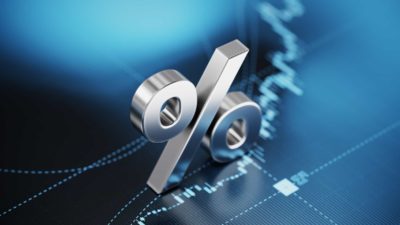It feels like investors, consumers, and businesses have barely had a chance to catch their breath after nine consecutive months of steep interest rate rises.
But brace yourselves because Tuesday will see a tenth rate hike.
That's according to a whopping 93% of economists surveyed this week by comparison site Finder.
The overwhelming majority (86%) thought that the Reserve Bank of Australia would add 25 basis points to the cash rate at its board meeting on Tuesday afternoon.
It's a cruel blow, especially for the many younger Australians who have never experienced such steep rises in their adulthood.
"The rate increases so far have already added around $12,000 per year to the average 30-year mortgage," said Finder head of consumer research Graham Cooke.
"Finder's Consumer Sentiment Tracker shows that 52% of Australians are feeling financial stress due to the increased costs, with younger Australians experiencing the highest amount of worry."
Stressed consumers mean they will spend less, leading to lower earnings for businesses. and pain for ASX shares.
It hurts, but the RBA doesn't have much choice
Unfortunately, inflation is still unacceptably high and the Reserve Bank's only tool to fight it is to fatten up interest rates.
The big worry is that inflation expectations become entrenched in people's minds. That could cause a price-wage spiral that will be very difficult to get out of.
University of Melbourne economist Matthew Greenwood-Nimmo said the RBA would be doing its utmost to avoid that scenario.
"Higher interest rates will help to manage inflation and keep inflation expectations anchored at appropriate levels."
A separate study of homeowners by Mozo earlier this year showed 36% of mortgage holders could not afford another rate rise on Tuesday.
"It's really shocking to think how many households will be struggling if there are more rate rises," said Mozo personal finance expert Claire Frawley.
"Everyone has already been making big sacrifices when it comes to finding extra cash, now they will need to decide what's next on the chopping block."
Comparing 1990s apples to 2020s oranges
While some older Australians have pointed out that they faced interest rates of 17% in the 1990s, property prices were much lower back then.
"Typical house prices used to be about four times incomes. Now they're more than eight times incomes, and more in Melbourne and Sydney," said Grattan Institute's Brendan Coates and Joey Moloney.
"This has meant that for any given mortgage rate, the share of income taken up by mortgage payments is much, much higher."
There could be some relief coming soon, though.
The majority of economists (55%) reckon that the Reserve Bank will hold the cash rate in its April meeting.
"I expect the Reserve Bank to raise the cash rate in March in its continued effort to contain inflation, however, we are likely nearing the end of this rate rise cycle," said Mortgage Choice economist Anthony Waldron.









